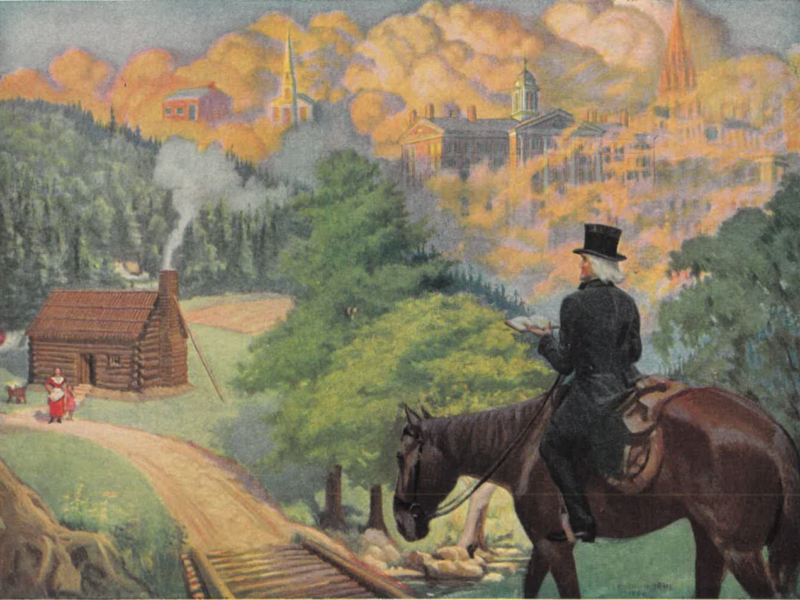In the latest Miserable Offenders Episode, yours truly mentioned the need for Anglicans to be disciplined by the prayer book and to take up the rule of life it requires. Also, I mentioned in a past post on Through A Mirror Darkly how the 2019 ACNA BCP does not require fasting or abstinence but merely suggests it as being something “traditionally” done. A February 2018 post from St. Benedict’s Anglican Church in Rockwall, TX, neatly summarizes the rules for fasting and abstinence required in the 1928 Book of Common Prayer and how even those requirements are more lax than the 1662 Book of Common Prayer.
Unfortunately, since the 1928 BCP those fasting and abstinence rules became “more like guidelines” and were lessened in number and in severity with the 1979 BCP removing the language of fasting and abstinence in place of “special acts of discipline and self-denial” and the 2019 ACNA BCP noting Ash Wednesday and Good Friday “are traditionally days of special devotion and total abstinence.” We should strive to meet the standard that the 1662 BCP is according to the Fundamental Declaration of the ACNA and fast as the 1662 calendar required of the clergy and laity alike. It is one piece of the puzzle to being a disciple of Christ, with the other pieces including daily prayer, daily reading of Scriptures, and repenting as a result of what we read, pray, and learn in fasting so that we may become better servants to our neighbors. In true Anglican fashion – God does not need these acts for they are not works earning merit, but are for our own formation to become like the Lord who suffered as a servant for us. Let us endeavor to shed our sins, become like Him, and love like Him by serving others in His Holy Name.
Another blog post of note comes from the excellent blog, Laudable Practice, where he dives into why the First and Second Book of Homiles are strong sources for solid doctrine. If you are looking for a copy of the homilies then I can’t recommend enough Dr. Gerald Bray’s Critical Edition on the Homilies – a pricey but good investment. A great companion and guide to the Homilies is also Dr. Bray’s “A Fruitful Exhortation” – and no I do not get any royalties for promoting Dr. Bray’s work!
The Homilies are often overlooked but let the reader understand that not only is there an entire Article from the Articles of Religion devoted to them (Article 35), but that one homily is expressly referenced for the Anglican doctrine on justification (See Article 11, referring to the Homily on Justification, which is actually entitled the Homily on the Salvation of Mankind). This homily also addresses the common question about St. James’ Epistle and his view of justification compared to St. Paul’s. This homily alone is a must-read for Anglicans. Anglicans need to rediscovery the Homilies and realize how often the church fathers are quoted and cited. You do not need to be Roman to be catholic or Eastern to be orthodox. If you remain within the boundaries of our formularies then to be Anglican is to be an orthodox and catholic churchman.







'Anglican Links of Interest 7.22.19' have 2 comments
July 23, 2019 @ 4:04 pm Moving to TNAA – We see through a mirror darkly
[…] up can find my first post at this link. Be sure to subscribe to new posts over at The North American Anglican so you don’t miss […]
August 4, 2019 @ 9:12 pm Sudduth Cummings
Thank you for your emphasis on the Book of Homilies, particularly those by Cranmer in the First Book of Homilies. They have been far too long neglected. It has been suggested that these standard teaching sermons were, in fact, Cranmer’s vision of adult formation in his work to create a holy commonwealth of England by the means of the English Bible, the Book of Common Prayer and the Homilies. I depended upon them in my D.Min. thesis at SMU Perkins School of Theology long ago in which I argued that Cranmer’s soteriology, and therefore, an authentic Anglican soteriology, can be found in the BCP and the Homilies. What’s interesting is that when John Wesley was criticized for his preaching salvation, (both by the Evangelical/Reformed wing and the more Catholic wing), Wesley simply reprinted Cranmer’s Homilies on Justification and Salvation as what he was preaching! In other words, Wesley was simply adhering to the Anglican standard of faith. I contend that until we pay attention to those homilies we will not develop an authentically Anglican form of evangelism and mission